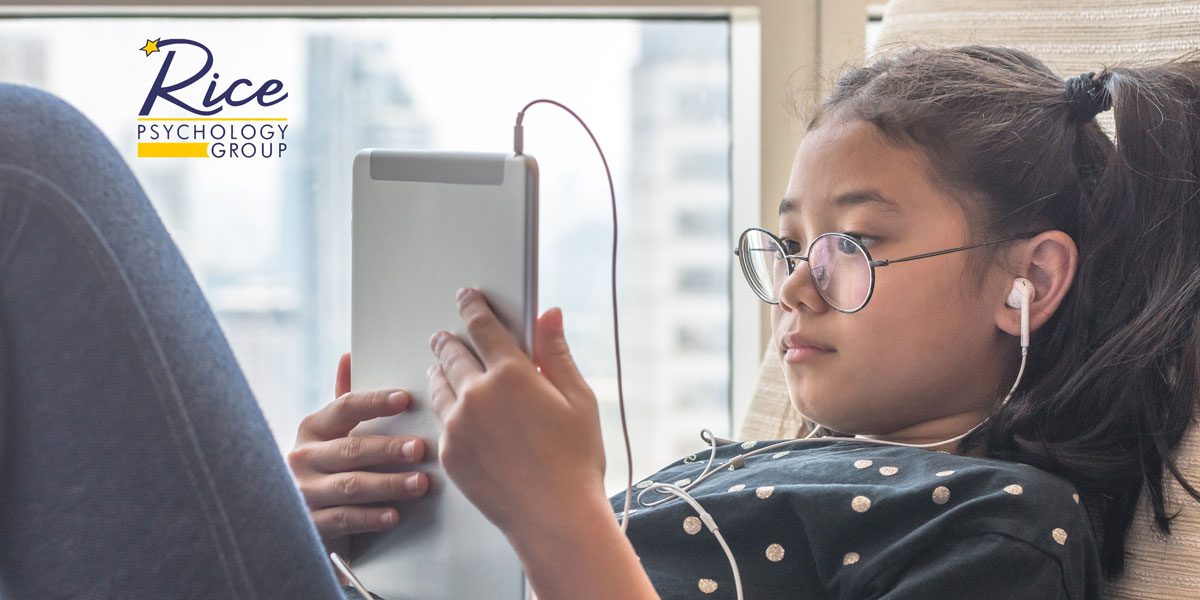
Consider the following story as it relates to this week’s topic.
I’ve been a gamer for as long as I can remember. Even after I got a full-time job, I still found time to get in front of the screen and play my favorite video games for at least an hour a day. Now, as Sandra and I await our first child, I’m wondering if I’ll have to completely eliminate gaming from my life. I wouldn’t want to open the gates for my child to a pastime that becomes an unhealthy obsession. I want to set a positive example, but is the solution really to just keep children away from screens at all times?
As parents, we do everything possible to ensure that our kids don’t become addicted to things we know are unhealthy, from drugs to too much sugar! These days, most of us include technology on this list. Many parents attempt to keep their kids away from technology at all costs so that they don’t become dependent. However, this method may not be the best option in the end.
In this piece, our mental health counselors and licensed child psychologists in Tampa want to introduce a different perspective on the topic of kids and screen time.
Understanding the Issue
According to Temple University professor Jordan Shapiro, author of a new book called “The New Childhood : Raising Kids to Thrive in a Connected World” parents should consider spending screen time with their kids in spite of many experts advising them to do the opposite.
Shapiro reveals that many parents try to have “device-free dinners” because they believe that to teach their kids how to interact and be fully present, it must be technology free. Many also worry that work, virtual life and home will mesh into one. However, it’s okay to have the occasional dinner where something comes up that needs “googling” or involves watching a quick funny video on YouTube. That’s reality, and learning how to integrate technology with IRL (in real life) relationships is key to raising healthy kids.

“Home was safe, and now these devices bring the entire world inside,” he says. So while kids may be physically at home, the all-encompassing world of online gaming and social media means that mentally and emotionally, they may be engrossed in the land of Fortnite or chatting with their online buddies.
If parents focus all of their energy on limiting screen time and walk away when they believe that their kids are playing “safe” online games, they are missing some terrific opportunities to help bridge an important gap. Keeping social media, gaming and other technology-based interactions away from your children can result in kids being thoroughly unprepared and unable to handle themselves with this tech. They are thrown into a new world without prior guidance and then parents hope that everything will be okay and that their kids will learn to manage technology on their own.
This could pave the way to the unhealthy device relationship that every parent fears – addiction.
Taking Positive Steps
To avoid the problems that come with “just saying no” to interactions between children and screens, parents need to learn how to spend time with both.
- For instance, it is extremely likely that your child will seek out video games that you’d rather they didn’t play. Tell them the reasons you don’t like the game and find out what draws them to it.
- Likewise, if they watch videos on YouTube that you don’t like, tell them what you find problematic about it and help them to think more critically about what they are watching. Teach them a little about how those videos are marketing to kids and the underlying messages they may be sending.
- Take the time to play games with your kids. Watch them play and have them teach you the basics. The more familiar you are with their online world, the more you can instill your values, help your child develop his or her character and understand how your child thinks, problem-solves and learns. And even if video games are not your thing, as a bonus, you might have some exceptional fun together! It’s a great chance for your child to be the expert and teach you!

Many parents have “no screen” times or areas in their homes where technology is not allowed. While this is okay, it’s important to also recognize that sometimes you will need to pull up a video, tweet, or Google result during a conversation.
Shapiro encourages parents to teach their children by showing them:
- How to appropriately use/share on social media.
- The difference between friendly teasing and bullying on social media platforms.
- How to know what their normal screen intake amount should be.
- Make sense of the things they enjoy and their reasons for liking them.
We’re Here for You in Tampa
At Rice Psychology Group, we know that sometimes it’s difficult to understand your children, especially when their experiences as kids are so different from your own.. Your kids are growing up with technology in a way that we could never have imagined and now we have to manage! In situations of this nature, our team of licensed psychologists and mental health counselors is always here to help. For more information about our services, get in touch with us today.

